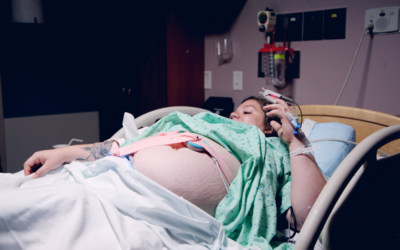Medical Negligence Claims: Informed Consent
Stern Law is led by Principal Solicitor, Terry Stern, one of the most experienced medical negligence lawyers in NSW with over 35 years in the field, and an Accredited Specialist in Personal injury Law.
Our Commitment: Stern Law is dedicated to a team approach, drawing on a variety of skills and backgrounds in medical negligence law to get our clients the best results.

Communication and consent are crucial elements to the doctor – patient relationship, as patients place their trust in their doctor, expecting them to act in their best interest. It is the doctor’s responsibility to ensure you have all the relevant information when providing consent to medical procedures and treatments. Unfortunately, poor communication, failure to warn of material risks or gaining consent from an incapacitated patient, amongst other things, can establish a claim in medical negligence.
What is ‘informed consent’?
Informed consent (given written or verbally) is valid when the medical practitioner explains to the patient:
- The purpose of the operation
- The part or parts of the body to be cut or removed.
- The possible consequences/ risks of the operation
- Any alternative treatment options which are reasonably available
The patient must be lucid and conscious when receiving the information and providing consent. If the patient is affected by drugs or analgesia, or the patient has been coerced, consent may be invalid. The explanation should be in plain language the general population can understand, technical medical language may establish grounds which makes the consent voidable as either; the patient could not understand or was misled by it.
Add Amendment: For patients whom English is not their first language, a translator in the native tongue of that patient should be considered. Language barrier can be significant, not simply because it can be difficult to convey complex medical jargon, but to communicate it in a culturally sensitive manner. For these people, the language barrier can exacerbate feelings of fear and anxiety which can cloud their judgment and sense of self-empowerment. In these circumstances it is important that practitioners are respectful and patient, ensuring that the patients’ needs are understood.
It is the responsibility of medical and health practitioners, particularly those working in emergency settings to have the availability of a translator on call at any time.
Other factors which should be considered by medical practitioners when obtaining consent include;
- If the person is under 18 years of age
- Any significant cultural barriers
- Intellectual and physical impairments or disabilities including elderly people.
An early decision D v S (1981) found the defendant surgeon, for medical negligence on the grounds that he did not explain to his patient the extensive and permanent nature of scarring she would suffer from a breast reduction surgery. The plaintiff suffered psychological injury in consequence and was compensated on the grounds that had she been fully informed of how the final result would appear; she would not have consented to the operation. The court held this was not informed consent.
Duty to warn of Material Risk
A study of negligence claims against doctors In Australia concerning informed consent, identified that in 71% of cases, the primary allegation concerned a complication of treatment that had not been mentioned or fully explained, and then materialised.[1]
In Rogers v Whitaker, the Hight Court held that a doctor has a duty to warn a patient of a material risk, a risk being material if in the circumstances a reasonable person, in the position of the patient, if warned of the risk, would be likely to attach significance to it.
Exceptions – In an emergency, a doctor may not have to receive consent to save a patient’s life.

Source: MedPro.com
A more complex situation of ‘informed consent’ is the ethical and legal aspects concerned with refusal of a blood transfusion by Jehovah’s witness. In 2023, the NSW Supreme Court overruled a parent’s decision to not consent to the use of a blood transfusion for their infant due to religious reasons. This child has a range of serous medical issues including renal and cardiac abnormalities and required two surgical procedures. The court upheld their jurisdiction to make orders where parents have not consented to medical treatment in circumstances in the ‘best interest and welfare’ of the child. (Read more on ABC News).
[1] The Medical Journal of Australia (MJA) ‘When informed consent goes poorly: a descriptive study of medical negligence claims and patient complaint’s
Do I have grounds for a claim?
If you have suffered a physical or mental injury due to a medical practitioner failing to obtain informed consent, you may have grounds for compensation, provided that the provider has breached their duty of care.
Remember, a signed a consent form, will not be held to be legally binding unless the doctor explained to you the above requirements for ‘informed consent’.
[1] The Medical Journal of Australia (MJA) ‘When informed consent goes poorly: a descriptive study of medical negligence claims and patient complaint’s
How Stern Law can help you.
The nature of these claims is complex and requires solicitors who are specialised in medical negligence law. With your consent, we will request your personal medical records, which will be reviewed by specialist medical negligence solicitors and expert medical advice to determine whether you have grounds for a claim.
For an empathetic and compassionate approach to compensation, reach out to our team of experts in medical negligence at Stern law.
Please call us on (02) 9387 1399 or email us at re*******@**********om.au
We look forward to sharing this journey with you.
Disclaimer: The content of this article is intended only to provide a summary and general overview of matters of interest. It does not constitute medical or legal advice and should not be relied on as such.




